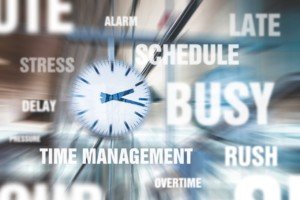A fast resting pulse is not good for the heart, and unfortunately, a stressful life can cause this.
Stress is bad for the heart, and one way this is so is because chronic stress or anxiety can cause a fast resting pulse.
“As a busy clinical cardiologist, it is not uncommon to see a patient who has resting tachycardia, that is, a sustained heart rate above 100 beats per minute,” says Donna P. Denier, MD, of The Cardiology Center with the Appalachian Regional Healthcare System.
We can almost always feel our heart “racing” when faced with acute anxiety or fear.
However, a persistently fast pulse can’t always be “felt” by the patient unless they take their pulse.
The best time to take it is first thing upon awakening, or, at least, when you’ve been relaxed for awhile.
But you should also take it randomly, since being relaxed might not be a frequent occurrence for a highly stressed person.
Dr. Denier explains, “Often the patient notices a feeling of palpitations or a sensation of their heart racing, but other people may have no symptoms at all.
“They may be referred by a primary physician who noticed this finding.”
Medical causes of a fast resting pulse include an overactive thyroid, anemia, infection and pain, says Dr. Denier. Caffeine and side effects of medications can also cause tachycardia.
“Anxiety can cause tachycardia, but should always be a diagnosis of exclusion after carefully ruling out any significant organic disease that may require treatment,” says Dr. Denier.
“Increased heart rate is the normal response to anxiety and it can be seen in short intervals or sustained.
“Under conditions of anxiety, worry or fear, the body secretes catecholamines into the blood resulting in increased heart rate and blood pressure.

Fight or flight response kicking into gear. Shutterstock/oneinchpunch
“This is part of the body’s normal fight or flight response, and it is considered a normal compensatory mechanism.”
Primitive man’s chief source of anxiety was an encounter with a wild boar or a struggle to capture dinner for his family.
The physical exertion of fight or flight neutralizes stress hormones.
Modern man doesn’t fight or flee; he sits and seethes. So while the short-term stress response is valuable and necessary to prepare for the fight or escape, “sustained stress is never good for the heart,” continues Dr. Denier.

“Sustained tachycardia over long periods of time can even cause the heart muscle to weaken, leading to a condition we call cardiomyopathy.
“Sudden severe stress can even cause acute injury to the heart that mimics a heart attack without any coronary artery disease.
“When anxiety is sustained, causing persistent tachycardia, it should always be evaluated by a specially trained professional and treated appropriately.”
Does a fast pulse from stress require medical treatment?
“It does not usually require treatment to suppress the heart rate except in certain conditions such as hyperthyroidism,” says Dr. Denier.
“It should always be recognized as an important warning sign and may indicate that a person’s stress level has moved into the unhealthy zone.”
Chronic anxiety can result in poor sleep, bad eating habits, dehydration and too much indulgence in vices like smoking, which can all increase heart rate.
“This is the reason that a good medical exam is so important,” says Dr. Denier.
“Treatment should be focused on recognizing the underlying contributing factors and finding more effective coping mechanisms.”
As mentioned, modern peoples can’t fight or flee, and instead, often hold their stress inside.
Men and women need to develop coping skills to subdue stress’s negative effects.
“Exercise is a perfect healthy release of stress and is always good for the heart,” says Dr. Denier.

Dr. Denier has been practicing medicine for over 20 years and is board certified by the American Board of Internal Medicine – Cardiovascular Disease.
 Lorra Garrick has been covering medical, fitness and cybersecurity topics for many years, having written thousands of articles for print magazines and websites, including as a ghostwriter. She’s also a former ACE-certified personal trainer.
Lorra Garrick has been covering medical, fitness and cybersecurity topics for many years, having written thousands of articles for print magazines and websites, including as a ghostwriter. She’s also a former ACE-certified personal trainer.









































